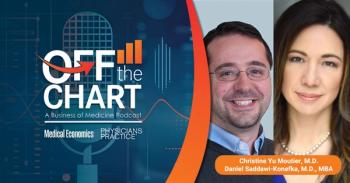
Passive Real Estate Investing: Basics and Benefits
Key principles for doctors to know.
Many physician colleagues who are several years out of training ask me what I am doing with any expendable cash outside of traditional investing in the equities or stock market. It seems over the last few years this question has become more and more common and is truly no surprise. As physicians, we are asked to do more and more administrative tasks outside of our clinical responsibilities. Combine this with the recent Covid-19 epidemic and it's not surprising to see the rate of physician burnout skyrocketing.
I believe that one of the ways to combat this tendency of physician burnout is to establish passive income outside of our day jobs that can diversify us in the case of job insecurity or instability. As busy professionals, we often don't have time for active involvement, and this is where passive income comes in.
Time Freedom: The Holy Grail
One of the huge benefits of establishing passive income streams outside of our medical practice is the ability to decide in what capacity and how much we want to work. Having passive income streams that produce cash flow monthly can be used to offset any of the decreased compensation that may come when a physician decides to cut back on clinical duties or responsibilities. As these alternative income streams grow it is empowering when it becomes our choice to decide what capacity and how we want to spend our time. To achieve freedom in time allocation is the biggest cure for physician burnout and something we should all explore as to whether this fits our lives.
Real Estate Syndications
When considering passive income streams, my focus is to keep it passive. As a full-time practicing physician, I am not looking for an extra job. A passive income can be accomplished by investing as a limited partner in real estate syndications.
Physicians may not be aware of this form of investing but should be. Four years ago, when I started this journey, I didn't know many physicians that had made these types of investments. Encouragingly, more physicians are becoming familiar with real estate syndications cash flow and tax benefits.
In these scenarios, one typically invests a certain amount of cash that can range from a $5,000-$50,000 minimum depending on the platform. For that investment, you now have fractional ownership in the real estate asset. These investments can be made in multifamily apartments, self-storage, mobile homes, etc. The beauty of this model is that you get many of the benefits that are afforded to the actual owner such as appreciation and tax benefits. Much of the income that is given off by these investments are typically tax-free when it's offset by depreciation. As the business plan is enacted and the properties begin to produce cash flow, investors are sent a check either on a monthly or quarterly basis into their accounts for the duration of the deal. In addition, once the deal is sold or refinanced, the investors get a lump sum during those capital events. There may be a tax liability at that time, but this can often be offset by investing in a new deal and using depreciation from that to offset sale proceeds.
Much of the work in this type of investment is upfront before we make the transaction in vetting the sponsor, the market, and the deal. Education is the one thing that can overcome the fear of that first step, so you must make that time commitment to learn before investing.
Making Money While We Sleep
As physicians, our income is, for the most part, tied directly to our active involvement and participation in our clinical duties. We are limited by the number of hours we can work in a week to obtain our income. The beauty of passive investing in the fashion outlined above is there is no limit to the scale and depth of the investments that you make other than your financial capacity to do so. In addition, this type of income comes in without your direct involvement and therefore can continue to grow without any limitation.
Examining Your Passive Income Goals
Establishing a passive income stream is not a requirement for all physicians, but in my opinion is something that would benefit most. It does require some upfront commitment to education, which can take time, but is well within the bounds of our intellectual capability to do so once committed.
About the Author
Samuel Giordano, M.D., is a practicing gastroenterologist, author, real estate investor, and co-founder of passiveadvantage.com .
Newsletter
Optimize your practice with the Physicians Practice newsletter, offering management pearls, leadership tips, and business strategies tailored for practice administrators and physicians of any specialty.









